#Gilbert O'Sullivan
Text

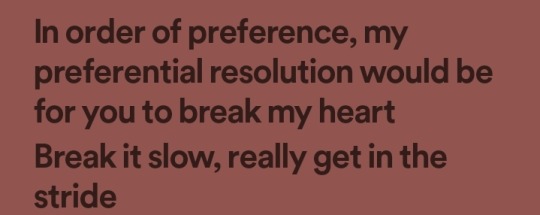


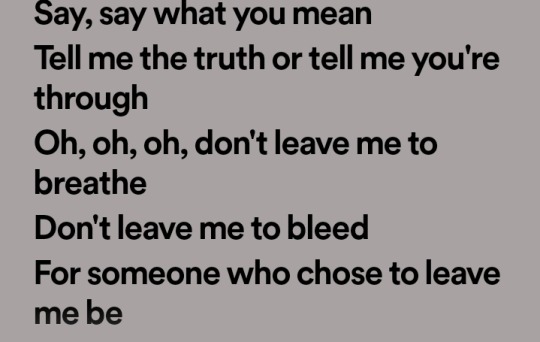




do you understand
(Mitski - A loving feeling | Bears in Trees - Simply Won't Believe It | Mitski - First Love/Late Spring | dexter - Maybe The Problem Is Me | Ricky Montgomery - My Heart Is Buried In Venice | Orla Gartland - Codependency | Bears in Trees - Seaside | The Walters - I Love You So | Gilbert O'Sullivan - Alone Again)
#does this count as poetry?#if im just sticking all these lyrics together?#whatever#my poetry#mitski#bears in trees#dexter#ricky montgomery#orla gartland#the walters#gilbert o'sullivan#web weaving
310 notes
·
View notes
Audio
Joan Baez “Silver Dagger” Gannon College, December 10, 1972.
[Audience member: “Silver Dagger!”]
“Oh wow, that’s only 400 years old—let me see if I remember that, that’s tempting. That “Silver Dagger” song is the most requested song, which is very significant if you’ve ever listened to it. It’s the most, ultimately miserable—depressing [laughs] beautiful! old song...My sister was singing in a club a while ago and she’d worked out this song with her singing partner, “Alone Again, Naturally.” So she felt she sort of had to excuse it to the audience because it was an AM radio song, she said, “What’s this folky people like us, picking up on an AM radio song?” She said, “Then I figured out it was just another miserable fucking song” [laughs] And it’s...something very appealing about all those miserable songs—I don’t know if I’m going to remember this thing or not. And I’m not high, I’m always like this...”
#On this date...#50th Anniversary#Joan Baez#Silver Dagger#Gannon College#Erie#Pennsylvania#PA#1972#1970s#Audio#Joan Baez Audio#Joan Baez (1960)#Folk#Quote#Alone Again Naturally#Gilbert O'Sullivan#Reference
259 notes
·
View notes
Text
youtube
Bon Matin 💙 🚍⛱️ 🆕️
Gilbert O'Sullivan 🎶 Blue Anchor Bay
(Driven)
#clipanim#gilbert o'sullivan#new music#blue anchor bay#music video#driven#clip music anim#youtube#bon matin#fidjie fidjie
16 notes
·
View notes
Text
Year-End Poll #23: 1972

[Image description: a collage of photos of the 10 musicians and musical groups featured in this poll. In order from left to right, top to bottom: Roberta Flack, Gilbert O'Sullivan, Don McLean, Harry Nilsson, Sammy Davis Jr., Joe Tex, Bill Withers, Mac Davis, Melanie, Wayne Newton. End description]
More information about this blog here
I mentioned in a previous poll how fast culture changed in the 1970s, and that doesn't feel like an exaggeration. This was the final year of the draft and more American troops were being taken out of Vietnam. As American troops were coming home, The Today Show aired a "while you were away" segment to go over how the culture has shifted while they were overseas. Most, if not all, of this segment was a joke, but it shows that even at the time people were aware that something was changing and it was changing fast. To paraphrase historian Rick Perlstein, they left a country where The Sound of Music was the most popular movie, and they came home to a country where the most popular movie was Last Tango in Paris.
To get back to the music, it feels wrong not to shine the spotlight on Don McLean's American Pie. For one, I probably could have used the lyrics as the blurb for one of the 60's polls and saved myself a lot of time. The lyrics themselves show this changing cultural shift as well, reflecting on how aimless this new generation felt. It's hard not to put a 2020s lens on everything. But looking back at a time that was rife with political scandals and politicians not seeming to care about the rising bodycounts affecting their citizens, I'd be lying if I said the sentiment doesn't hit home. "A generation lost in space" indeed.
However, in addition to the longest song on this poll, I also want to highlight one of the shorter ones. Specifically, Joe Tex's I Gotcha. Funk music is going to continue to grow in popularity this decade, even though the full extent of that cultural movement won't always be seen on the top of the charts. But the reason I wanted to highlight this song specifically is to use it as a prelude to what's coming next. If you listen to the song, pay attention to the chorus when the rest of the instruments drop out to put more emphasis on the percussion and how Joe Tex's rhythmic vocals play against the beat.
And for my third highlight, if the artist behind the tenth song sounds familiar, that's because the song was by Mr. Las Vegas himself. Or, if any Fallout fans follow this blog (and judging by the results on some of the 50's-60's polls, I know you're here), Mr. New Vegas. Speaking of gamers, Pong debuted this year as well.
I've rewritten this section multiple times, because I don't want to gloss over a specific moment in history, but it also feels jarring to bring it up in a poll with mostly unpolitical songs. After spending a few polls talking about how the war affected the American psyche, it feels important to reinforce that the people of Vietnam didn't have to be soldiers or reporters to see the war before their eyes instead of on a television set. 1972 also marks the year of the Christmas Bombings, one of the most horrific 12-day stretches in an already horrific war. Even though I don't go over every historic moment in these descriptions, it felt wrong not to bring this up. Even as this event would result in the general population's mistrust towards Nixon and the government growing even more rapidly, it wouldn't be enough.
Nixon no longer had to worry about reelection and it felt like the entire country was holding its breath before something major happened.
#billboard poll#billboard music#1970s#1970s music#1972#roberta flack#gilbert o'sullivan#don mclean#harry nilsson#sammy davis jr#joe tex#bill withers#mac davis#melanie#wayne newton
57 notes
·
View notes
Text


"Nothing good, nothing bad, nothing ventured, nothing gained" sings Gilbert O'Sullivan ... the man on the radio talks again of Easter and makes pleasurable sounds as he opens the latest parcel of edibles sent in by a listener ... the traffic lady is busy rounding up the traffic jams, collisions and breakdowns.
There's something irresistible as an olive oil bottle empties out ... brings out that inner pattern urge. The seconds drop one way, the last glistening drips fall this way and that ... half controlled, half chaos. A squat little green bottle ... the next will be clear, swanlike necked.
Sunshine and birdsong and the weekly call of the shiny metropolis as I sip my coffee ... I think you can guess at one of the items on my shopping list ... and maybe I'll even remember to take it with me this time ...
#man on the radio#traffic lady#olive oil#patterns#brief encounter#shopping#lists#writerscommunity#writers of tumblr#original writing#photographers on tumblr#original photography on tumblr#gilbert o'sullivan#good morning
7 notes
·
View notes
Text
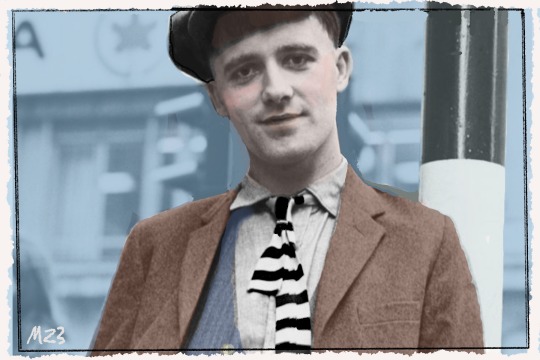
Have a Nice Day: The 1970s
“Alone Again (Naturally)” (1972)
Gilbert O’Sullivan
Epic Records
(Written by Gilbert O’Sullivan)
Highest U.S. Billboard Chart Position – No. 1
To think that only yesterday
I was cheerful, bright and gay
Looking forward to who wouldn't do
The role I was about to play
But as if to knock me down
Reality came around
And without so much as a mere touch
Cut me into little pieces
Leaving me to doubt
Talk about, God in His mercy
Oh, if he really does exist
Why did he desert me
In my hour of need
I truly am indeed
Alone again, naturally.
– Gilbert O’Sullivan
Welcome to my childhood. “Alone Again (Naturally)”, certainly one of the most depressing songs ever recorded, was my first most favorite record ever. I remember it playing at the Boys Club of Savannah over the loud speaker in the gym along with all of the other groovy, long-haired country-tinged soft rock oozing out of the airwaves at the time. It is a song about a young man being jilted at the altar, swearing to himself he will throw himself off a tall building soon, and then about the unexpected death of a parent and a mother mute with grief…and I loved it. I would wander around the Boys Club with my own mute, melancholic fantasies of sorrow and loneliness, oblivious that most boys my age were still into Snoopy and Bubblegum music. Listen: it was the 70s—no subject seemed off limits.
The open of the song is Sullivan’s signature broken piano style, something that sounds like a mistake but by being repeated within the song ends up as a very effective method of expressing brokenness itself. Gilbert was Irish-born to a working-class family and moved to England as a child; his actual mother ran a sweet shop and his father was a butcher. He was a natural musician, and intent on pop success he invented a Chaplin-esque, waifish turn-of-the-century affect: suspenders, shorts, a tilted cap. By the time of “Alone Again…” he switched to an even more ridiculous 1920’s college prep look, sporting V-neck sweaters with a large silly G pasted on them. No matter; the songs spoke for themselves, little dour slices of life with old-fashioned melodies and a vintage feel, and proved enormously successful: he was the top star of 1972.
I mention this because it feels as though Gilbert’s catalogue is as lost as his records once sounded. In America he is rarely mentioned (or so it seems to me) even though he had 3 top ten hits in the US (a second single, “Clair”, reached no.2 that same year, followed by a slightly funkier song in 1973 entitled “Get Down” that made it to No.7). He was Grammy-nominated that year for Song of the Year and Record of the Year, along with Roberta Flack (for “The First Time Ever I Saw Your Face”) which she won (deservedly) for both. It is astonishing to my adult self that these two records exist in the same universe, much less the same year, Roberta’s record still feeling endlessly modern and fresh, and O’Sullivan’s feeling like it belongs in the Norton Anthology of English Literature instead.
This is not to diminish Gilbert in the least (he is still alive and working and, of course, very famous in Japan, like all the major/minors are). If I happen to hear this record it is just as wonderful as it ever was, and it will still fill the 7-year-old in me with those wistful feelings of chances lost and memories of being jilted, even though my only real tragedies up to that point consisted of finding that the milk had run out for my Cap’n Crunch cereal that morning. And yet I would still find myself wistfully kicking around the empty basketball gym, avoiding all of the other rowdy boys, just waiting around to see what the 70s had in store for me, and surreptitiously absorbing all of those groovy tunes ricocheting across the gym.
_
“Alone Again (Naturally)”, besides being a well-covered and highly regarded song (Nina Simone recorded a version), is notable for another inflection point in history: in 1991 O’Sullivan sued rapper Biz Markie for prominently using the piano break in the Hip hop song “Alone Again”. Gilbert won 100% of the royalties for the rap song, and this would help to establish the industry standard for clearing (and paying for) any sample by another artist, which has changed the music business to this day, for better or for worse.
8 notes
·
View notes
Text
youtube
The Top Of The Poppers Sing and Play
Gilbert O'Sullivan's Greatest Hits

6 notes
·
View notes
Text
youtube
Mood
Nothing old, nothing new, nothing ventured
Nothing gained, nothing still-born or lost
Nothing further than proof, nothing wilder than youth
Nothing older than time, nothing sweeter than wine
Nothing physically recklessly, hopelessly blind
Nothing I couldn't say
Nothing why 'cos today
Nothing rhymed
If you ever wondered where the title of my blog came from...
This feeling inside me could never deny me
The right to be wrong if I choose
And this pleasure I get
From say winning a bet
Is to lose
10 notes
·
View notes
Text
Alone Again (Naturally) - Gilbert O'Sullivan - 1971
youtube
5 notes
·
View notes
Video
youtube
End-vironmental Piece
2 notes
·
View notes
Note
https://youtu.be/D_P-v1BVQn8
my theme song ✨
(i have 3 theme songs now shhh)
THOSE CAPTIONS AT THE BEGINNING
could not stop laughing
djhgjsdg oh my god
i love the hair
i love the row of violins behind him
i love everything
2 notes
·
View notes
Photo
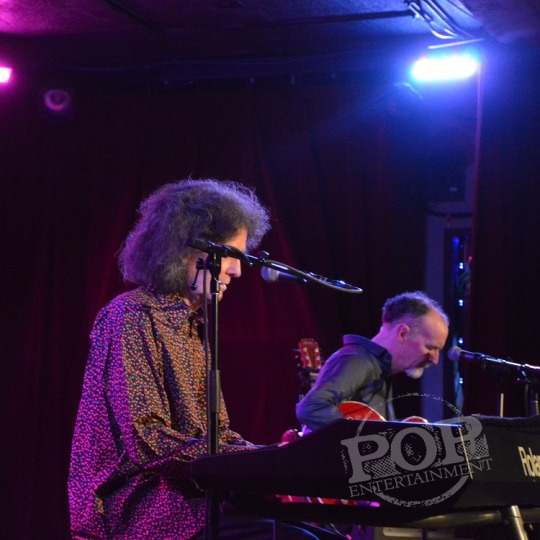
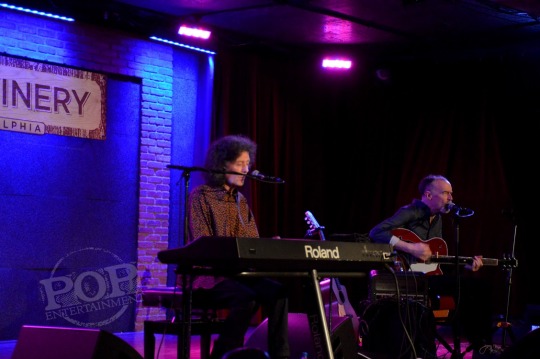

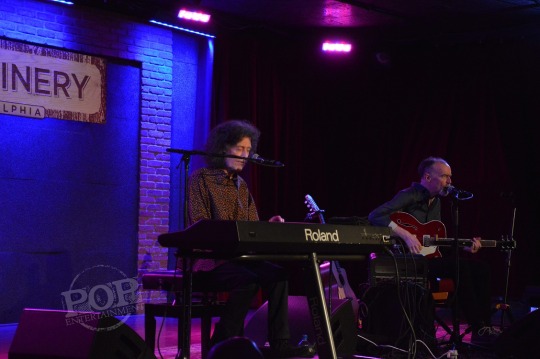

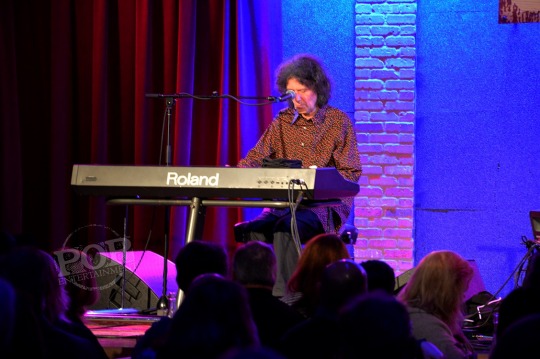
Gilbert O’Sullivan – City Winery – Philadelphia, PA – March 15, 2023
Photos by Jay S. Jacobs © 2023
3 notes
·
View notes
Text
in a little while from now
if i'm not feeling any less sour
i promise myself to treat myself
and visit a nearby tower
and climbing to the top
will throw myself off
5 notes
·
View notes
Text
youtube
The #1 song from 50 years ago was Gilbert O’Sullivan’s “Alone Again (Naturally)”. This video is from a 2016 performance.
______________________________
Alone Again (Naturally)
Songwriter: Gilbert O’Sullivan
In a little while from now
If I'm not feeling any less sour
I promise myself to treat myself
And visit a nearby tower
And climbing to the top
Will throw myself off
In an effort to make clear to whomever
What it's like when you're shattered
Left standing in the lurch
At a church where people saying
My God, that's tough, she stood him up
No point in us remaining
We may as well go home
As I did on my own
Alone again, naturally
To think that only yesterday
I was cheerful, bright and gay
Looking forward to, well, who wouldn't do
The role I was about to play
But as if to knock me down
Reality came around
And without so much as a mere touch
Cut me into little pieces
Leaving me to doubt
Talk about God in His mercy
Who, if He really does exist
Why did He desert me?
And in my hour of need
I truly am, indeed
Alone again, naturally
It seems to me that there are more hearts
Broken in the world that can't be mended
Left unattended
What do we do?
What do we do?
Alone again, naturally
Now, looking back over the years
And whatever else that appears
I remember I cried when my father died
Never wishing to hide the tears
And at sixty-five years old
My mother, God rest her soul
Couldn't understand why the only man
She had ever loved had been taken
Leaving her to start
With a heart so badly broken
Despite encouragement from me
No words were ever spoken
And when she passed away
I cried and cried all day
Alone again, naturally
Alone again, naturally
4 notes
·
View notes
Photo
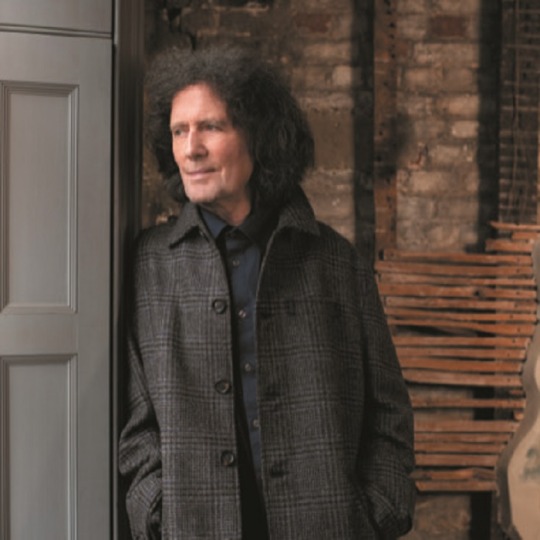
Gilbert O’Sullivan
Driven to Tour Again, Naturally
By Jay S. Jacobs
Gilbert O’Sullivan sure believes in making up for lost time. The 1970s hitmaker – who had three chart-topping hits in the US, “Alone Again (Naturally),” “Clair” and “Get Down” – had not played a live gig in the US since 1973 when he did a couple of US shows in 2019. Born Ray O’Sullivan, he sold tens of millions of albums in the 1970s and was named the male singer of the year in 1972.
He’s since had a long, fruitful career as a singer and songwriter, releasing many records and touring over the years throughout Europe and Asia. But somehow, he never made it back to the States as a live act until just four years ago.
Now, O’Sullivan is on his third tour in the last four years in the United States. In fact, he had a tour planned in 2020, but it had to be postponed until the next year due to the COVID pandemic, which shut all touring down around the world. (We actually spoke with O’Sullivan about the planned tour in January of 2020.)
Now he has a tour planned for this year with himself and his long-time guitarist Bill Shanley, starting in Boston on March 11 and rolling through eight cities before closing in Nashville on March 22. He’ll be hitting Philadelphia at the City Winery on March 15.
Also, O’Sullivan recently released his latest album, Driven, which has been gaining huge buzz and appreciation worldwide. The single, “Take Love” with guest vocalist KT Tunstall, has also caught people’s attention.
We caught up with O’Sullivan a few weeks before the start of the tour to chat about life on the road and the long, rewarding life of being a singer/songwriter.
You hadn't done any performances in the US for 43 years. Now, you've done US tours in three of the last four years – and of course, the 2020 tour was postponed due to COVID. What made you think it was time to return to the States? Do you plan on continuing to do it annually now that you've broken through and started coming again?
It all stems from way back in ‘73, when, after having three-million sellers in America with “Alone Again (Naturally),” “Clair” and “Get Down,” I was beginning to tour in Europe and the UK. It was decided that we would have the first American tour. So my manager had to make the decision. Remember, this is not my department. (laughs) I write songs. I make records. I sing. I leave all the organizing all the touring to other people. Anyway, my manager Gordon Mills, who managed Tom Jones and Engelbert Humperdinck, had to make a decision. With three million sellers, does he [have me] go out on his own and do what Tom and Engelbert are doing, big theaters? Or does he [have me] support the Moody Blues? Because you know what happens, you support a major act, and then you become a major act, but the support act.
Of course.
He had to make that decision. Not my decision. They made the wrong one. Other than Carnegie Hall in New York with just me, which was a lovely show. Once I went out to bigger arenas, it was becoming a bit of a disaster. The tour got pulled. It was a wonderful disaster. I mean, we had a private plane, an orchestra, really nice people, but it got pulled. That was the end of my touring in America. Then we go through to the early ‘90s. [I’m] getting a band together. By the middle ‘90s, I've got a really good band. I still have them, of course. We tried to get into America, but the cost of bringing a band into America, as you can imagine, is pretty high.
Sure…
It just wasn't feasible. Three years ago, my guitar player [Bill Shanley] and myself decided we would do up close and personal intimate concert, just the two of us, around Europe, UK and Ireland. Over two hours, and people would get to hear the songs very up close and personal. It's good to hear the words more clearly. That then opened the door for [the US]. As a result of that, with it being the two of us, the offers came in. (laughs) After such a long time, it's nice to think that we got there eventually.
Most of the shows that you've done in the States over the last few years have been at City Wineries in different cities. How did the connection with City Winery happen?
That’s not my department, Jay. I leave that to management. It's their department. They're the ones. I'd always said in the ‘90s, “How can we get into America? Keep chasing with the band.” Then of course, you came on board when it was down to just the two of us, so that was out in the way. I don't know why the Wineries. They’re good venues because they're intimate, up close and personal. Those are ideal venues for appearing in. But I'm happy to be playing anywhere. Just to be able to get to America, after all, it was a real plus factor.
You released Driven last year and that was, I believe your 20th album. How has recording changed over the years?
Well, ironically enough for me, it hasn't changed much. With me, it isn't rocket science. The last album, the one before, the one before that; here's how it works. I decide on a producer. I like working with a different producer [each album]. Why? Because it's always the same writer, always the same singer. The producer brings his aspect to the table. That can vary and it can be interesting. So I meet the producer, agree with a producer, then he has to hear the songs. I play him the 12-13 melodies without the lyrics written. He picks the 12 he likes. I go away and write the lyrics. Studio session is set up. We go into the studio. I meet the musicians. I allow the producer to pick the musicians. I think that's a good thing. I could choose musicians, but I feel that the right producer, he’ll know good people.
That makes sense.
So, I meet them for the first time in the studio. They stand around the piano, after we shake hands and stuff. I play the first song, any song on a piano. They go back to their chairs. We rehearse it a few times. And we take it. That process is how it's been and how it is. It isn't like rocket science. We don't spend three days with the drum machine. We don't spend days and days doing overdubs. It has a live feel. Not intentionally, it's just because it works. We see no reason to change that. We're in an era now where real drumming is almost out the window. How many records you care to mention, it's drum machines. That used to be the 80s thing. In the 90s real drums came back and now here we are back to drum machines. But I like having the real drummer there.
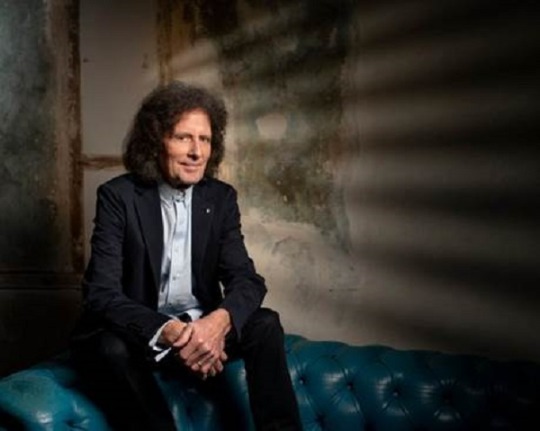
The single “Take Love” is a duet with KT Tunstall, who is great. I interviewed her years ago. How did you decide to have her be a part of the song and what was she like to work with?
That came about because we finished recording the track and I said to Andy [Wright], the producer, “This could make a good duet.” We thought about who we might want to get. I said to Andy that KT Tunstall had a song some years ago called “Suddenly I See,” a really good song. That's not a dissimilar feel to what we were doing with “Take Love.” So let's approach KT. As you probably know, she lives in California. We sent her the song. She loved it. Then we sent her the parts. I told her, “Sing what you want.” It was great. The lovely thing about all that was that apart from it being a really good record together, she came to London before the record was released, and we spent the day doing a video. I hadn't done a video in about 30-odd years. Spent time with her talking about music and stuff. Really good. Nice person to work with. Very talented, too.
Mick Hucknall also appeared on “Let Bygones Be Bygones.” How did you get involved with him?
Again with Andy the producer. Andy Wright produces Simply Red. He [also] produces Simple Minds. And he's produced Simple O’Sullivan. (laughs) He goes to see Mick. I knew Mick was a fan because I had met him at a charity show, just to say hello to some years ago. Anyway, Andy would go down and visit Mick while we were recording. He came back and said that Mick had said to him, “If Ray's got a song that I could sing with him as a duet, I'd love to do it.” We sent him a couple down there and he chose “Let Bygones Be Bygones.” [It’s a] nice version, because it's a softer sounding Mick, not the kind of raucous Mick Hucknall you hear on Simply Red. It was really nice to have him.
Driven has done rather well as did your last album, Gilbert O’Sullivan. How gratifying is it that there was still a big audience waiting to hear new work from you?
I was always troubled in the past with reviews. I rarely get them because of how I presented the image that I presented. But ironically enough, Driven has got the best reviews I think I've ever had. That's really nice. That's the business justifying me continuing. It's one thing to be making records now that nobody notices. But if you're making records, writing songs that people are talking up... yeah, I don't mind. (laughs)
When you were getting started, could you have ever imagined that you'd still be playing music for a career after all this time?
We didn't really think like that. Because you're young, and you're just enjoying the moment. You're not looking beyond what's really going on. You have that famous incident; the Beatles when they were in the dressing room, they were being asked by a British reporter, “How long do you think this will last? And what do you think you'll do?” So Ringo said, “Probably last a few years, and I'll become a hairdresser.” John and Paul said, “Well, maybe, we could continue writing songs for some years.” But they never saw beyond a few years. I think it surprises us all.
Yeah.
The thing about what I do, if I wasn't writing songs, I wouldn't be talking to you. But the joy of songwriting is still there. I mean, I have that hunger for it. Hence the title of the album Driven. I am driven because I come up with the goods. Then if I come up with the goods, you want to get them out there to whoever is interested. I love it, so long may it continue. As long as I'm able to do it.
Your first big hit, “Nothing Rhymed,” was inspired by world hunger. How did that come about? It's surprising looking back that you were so ahead of the curve on writing on that subject. So many people have written about it since then, but I can't think of anything before that.
Here's what happened. On television [they showed the starvation in] Biafra. We saw for the first time, starving children and stuff. Nobody had seen that on TV before. It just shocked everybody. The whole of the UK, where I was living in London, were just shocked by the images of the starving children. So that got into the song. My songwriting is often done like a newspaper. Page one can be about one subject, page two could be about something else, the common denominator might be the hook line. So I brought that in.
I see…
I remember Richard Curtis, the film director [he wrote Four Weddings and a Funeral, Notting Hill and directed Love Actually], he gave a speech on television a few years back, talking about some of the work he'd done. He said he drew great inspiration from seeing Gilbert O’Sullivan singing about starving children. “Nothing Rhymed” became a very special song for a lot of people, which is really nice. And you're subtly bringing that subject up [in the song], you're not out there becoming other than a singer. You're just making people aware that this is going on and maybe we should do something.
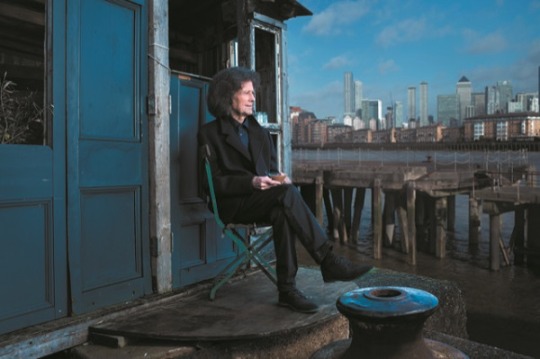
Another song of yours that was big that made people aware of things is “Alone Again (Naturally),” which is such a beautiful song, but it's lyrically so sad. I know that it's in no way autobiographical to you but was it difficult as a songwriter to get into such a desperate headspace?
No. Just before I started writing that I had been still working as a postal clerk in London, earning 10 pounds a week and writing early in the evening, or on the weekend. So when Gordon Mills signed me up, I was able to write full time, and gain 10 pounds without having to be a postal guy to do it. I was in heaven. I was able to write during the day. One of those days, I was coming up with “Alone Again.” I've always said, you don't have to [have] experience to be able to write about serious subjects. I think that's what makes you a good lyricist. Once you get into that subject, you just get into it. That's what happened to that song. The other song I was writing at the time was “Out of the Question,” just a good, fun song. The funny thing was we had to go in the studio not long after these two songs were completed to make the next single. Everybody thought “Out of the Question” would be the single. People liked “Alone Again,” but they didn't think it was commercially strong. We know what happened.
You wrote “Clair” about your manager Gordon Mills’ young daughter. Are you still in touch with Clair? Do you know how she feels about the song after all these years, now that she's an adult, too?
She has two children of her own. Yeah, we see her. We meet up with her. We had a nice incident when I did Hyde Park. I was one of the guests for Hyde Park concert with the BBC Concert Orchestra in front of 30,000 people. My daughters invited Claire to come along to see it. She had been to other shows previously in theaters, but this was very special. She came along and my daughter said to me that when I sang “Clair,” during that performance, she almost had tears in her eyes. It was very special. Something really nice about that.
“Get Down” is one of your more rocking tunes that really became big. As a songwriter, do you enjoy playing with different styles and genres?
Yeah, that's the key to what you're doing. God forbid every song would be a ballad. You have that variety. It helps in concert, too. We're two hours. You don't want to be singing the same song for two hours. It's good to have variety. What gets you off as a songwriter is to sit at the piano rock it up, something will come. Then something else will be slower. Something else can be medium. That's the joy of songwriting. You don't really know what's going to come out of the woodwork. (laughs) But it's fun.
I've noticed in the two Philly shows that I've seen you do in the last few years that that while you cover songs from throughout your career, one of your US Top 40 hits, “Ooh Baby,” has not been on the playlist. Is there a reason why that one was skipped?
Yeah. I liked the record. It actually made the top 30 in the Black charts in America. At the time it was a big deal. I just thought there was there's too many bloody “ooh babies” in it. I’m coming around to performing it, but I'll just cut out some of that. The reason is simply that there was too many “ooh babies” in that. It's the one record when I look back and listen to it, there are too many of them in there. I wish I'd have reduced the amount. It's not a bad little tune. Got a good feel about it.
What are some of the songs that you've written over the years that you feel that might have slipped through the cracks, that you're very proud of and think that represent you as an artist, but they never really got as much notice as you'd expect?
You can feel like that, but you have to make sure that it doesn't last very long. You just get on with it. You're happy with it. It's a success when you’ve written what you think is a good song. It's a good song. It's a success when you make the record and you're happy with it. There are people who have made records they don't like, and they become successful, and they hate them. At least every song I've written that's been released, I'm happy with. (Laughs) But “Ooh Baby” with too many “ooh babies.” Of course I have [some songs I thought would do better]. There's a song called, “It's Easy to See When You're Blind.” I really liked that song. Then there's the one I wrote about 9/11, which we'll be doing on the American tour, “All They Wanted To Say.” I get a lot of mail from people in America with that song because I picked up on an aspect of 9/11 that that wasn't getting a lot of attention. So yeah, there are there are songs out there, Jay, but I'm happy with them. Many of them we perform.
I saw your recent statement about the recent death of Burt Bacharach. As a songwriter, how did he inspire you?
A big influence. Bacharach and [lyricist Hal] David… I mean, fantastic. A great melody writer and a great lyricist. Hal doesn't get the credit. It's always the lyricist who seems to lose out a little. Rodgers and Hart – Lorenz Hart didn't have a happy life. Richard Rodgers and Hammerstein. They're great collaborators, and one wouldn't be there without the other. Burt Bacharach, “Raindrops Keep Falling on My Head,” he wrote (hums the tune). Hal David wrote the words that we all know. It is a huge influence itself. Never a week goes by here when I don't put on Bacharach CDs, because the melodies are great. That's how you're able to write yourself because you're influenced by hearing great melodies. Whether it's Carole King – [Gerry] Goffin and King. Whether it's [Neil] Sedaka/[Howard] Greenfield. Whether it's even Dylan, or whether it's Lennon and McCartney, you hear great music, and that's what enables you to be able to do it. Without hearing good music, without getting that influence, I think you'd struggle.
Now, speaking of influencing other artists, years ago I interviewed singer Mark McGrath of the band Sugar Ray and I mentioned to him the fact that he had paraphrased a line from “Alone Again (Naturally)” in his hit song “Fly” – “Twenty-five years old, my mother God bless her soul.” He said I was the first person who had ever mentioned that to him and that he was a huge fan of yours and the song and that line was just a little tribute. Did you know about that usage in the song, and how does it feel that your work has inspired so many artists who came in your wake?
Well, I mean, I've objected to changes of lyrics in the past, but that was paraphrasing what I said so I wouldn't object to that. It's a nice line. A few other people have [done that]. I seem to remember there was a band formed by Barry Gibb’s son [Steve Gibb], and they did a version of [”Alone Again (Naturally)”]. Sarah Vaughan did “I remember I cried when my daddy died,” which I liked. Nina Simone went too far. She went a little bit well over the top. I wasn't mad about that. But I was a great admirer of Nina Simone. In fact, she was a big influence.
She was a great artist. I have to admit I don't know her version of your song. I'll have to listen to it… or maybe not. (Ed. note: I did listen to her version on YouTube, and the lyrics were nearly completely changed.)
You can get it. I have the album that it came out on [the 1982 album Fodder on My Wings]. It was done at a time when I wasn't made aware of it. When I became aware of it, it was already done. But my admiration for her stopped me from overreacting. (laughs) She loved the song, but she just added elements. I think she went too far but, in the end, I let it go because she's a huge influence.
Along those lines, I remember years ago the rapper Biz Markie tried to use a sample of “Alone Again (Naturally),” without giving you credit, and that became a legal battle. What exactly happened with that?
The good and bad thing about court cases and taking somebody to court is… the bad thing is, is it's very expensive thing to do. The good thing is that in this instance, it set a precedent, because it was the first sample case to go to court. That meant that every sample case after my case meant that people had to have permission to do it. Whereas before the Biz Markie scenario, if you'd have been sampled, nobody would have done anything about it. That was the positive thing to come out of it. Biz Markie is a comic rapper. They asked if they could use it, and I asked to hear it. I didn't want it. I didn't like it. No comedy element can be allowed with that song. I make sure in my publishing agreements that nobody can ever use that song without my permission. But he went ahead and did it anyway. He never stopped, so I had to go to court and in America, of all places. An expensive business, hundreds of thousands of dollars before we get into court. I'm the first person that had to go on the stand. Biz Markie wasn't even there at the court. (laughs)
Wow.
But we won that case. I was never going to lose, but I had to go through all that you have to go through. We won the case. We won it simply because Biz Markie’s record label was put out by Warner's. They distributed. This court case happened at a time when you'd be coming up to the Christmas period for album sales. So, the judge turned around and said that if you don't take this recording off the market within the next month or the next week, I'll have every Warner Brothers [record] taken off. (laughs) The “S” hit the fan big time. By the time we walked back to the lawyer's office, it was all over.
You have been writing your own music for years. Did you ever consider collaborating with other writers?
I don't need to collaborate with anybody because I'm turning out the lyrics as I am turning out the melodies. As long as I'm doing that, why do I need to collaborate? If I felt a weakness on one of them or the other, I might. Lyrics take a long time, so you could argue that maybe it would be nice at some point [if] you've got the melody, give it to somebody else to do the lyric and stuff. But at the end of the day, however long it takes me to do a lyric, I'm always happy that I did it.
One cool thing about your shows is that you play over 30 songs, and every single one is an original. A lot of artists would throw in one or two covers. Have you ever considered doing that? Or why did you decide you wanted to only record perform your own songs?
I don't do covers. I mean, some… “She's a Woman,” [by The Beatles] I've sang a little because I got influenced by that song. I wrote a song quite similar to that. And a bit of Fats Domino. Big influence.
I was reading recently that they “Get Down” was sort of influenced by The Faces’ “Cindy Incidentally.”
Inspiration. That kind of inspired me. Yeah, when I first heard that, it set me off in that area. That happens. There's a lot of songs. You know the song “Just call me angel of the morning?” [“Angel of the Morning” by Merrilee Rush.] That was influenced by a Rolling Stones ballad. You get that. That happens. And that's a good thing. That's a good thing to be influenced by. As long as what you're doing is original and not a copy.
It was funny, seeing you in concert these days and seeing people with their cell phones in the air. How has touring changed over the years?
Yeah, there is that going on. As far as I'm concerned, I just go out there to perform. In the old days you'd be doing an hour. I started off pretty badly in terms of live performance. As you probably know, a lot of performers, even songwriters, start off by singing in clubs and stuff. They get their apprenticeship in the club area before they get into success with big bands and whatever. I didn't come through like that. I came through just simply by writing songs in a garden shed. I had no experience of live performance before “Nothing Rhymed” came out. After “Nothing Rhymed” came out, it was two years actually, it was 1972 before I actually did my first tour. So it was always the songwriting that occupied my time, not performing. Once I started to do concerts, it would be an hour set. The only mistake I ever made was when they put me in at the London Palladium for two shows a night. It was horrendous, because without the experience to handle my voice, two shows a night killed me. In between shows, I would be lying on the floor with all this stuff going into me to try and get me to get through the next hour. I've learned through the years to the point now where vocally, I look after my voice, and I'm a much better singer than I used to be. The only difference for me is that. In terms of audiences, anybody that comes along to see me, I'm happy with it. (laughs) It might have been a younger audience in the early days. The people that come to see it now, it's a cross section. A bit of a cliche to say that, but it’s true, young and old. I meet them afterwards. That's what I like about live performances. You get to meet people and they'll tell you what they think of you – good or bad. (laughs again)
Copyright ©2023 PopEntertainment.com. All rights reserved. Posted: February 22, 2023.
Photos © 2023. Courtesy of BMG. All rights reserved.
youtube
1 note
·
View note
Text
Watch "Gilbert O'Sullivan - Alone Again (original version)" on YouTube
youtube
Song of the day: Alone Again (Naturally) by Gilbert O'Sullivan (1971) #gilbertosullivan #aloneagainnaturally #70s
2 notes
·
View notes